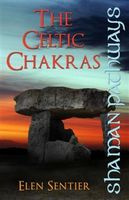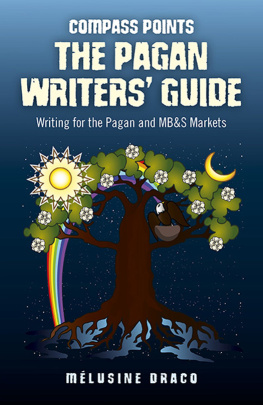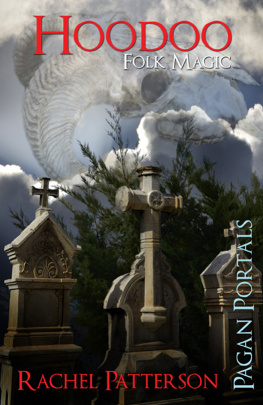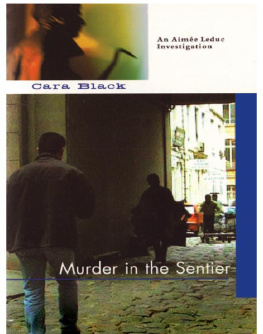
PRACTICALLY PAGAN
An Alternative Guide to Gardening

JOHN HUNT PUBLISHING
First published by Moon Books, 2021
Moon Books is an imprint of John Hunt Publishing Ltd., No. 3 East Street, Alresford
Hampshire SO24 9EE, UK
www.johnhuntpublishing.com
www.moon-books.net
For distributor details and how to order please visit the Ordering section on our website.
Elen Sentier 2020
ISBN: 978 1 78904 373 0
978 1 78904 374 7 (ebook)
Library of Congress Control Number: 2020947606
All rights reserved. Except for brief quotations in critical articles or reviews, no part of this book may be reproduced in any manner without prior written permission from the publishers.
The rights of Elen Sentier as author have been asserted in accordance with the Copyright, Designs and Patents Act 1988.
A CIP catalogue record for this book is available from the British Library.
Design: Matthew Greenfield
UK: Printed and bound by CPI Group (UK) Ltd, Croydon, CR0 4YY
Printed in North America by CPI GPS partners
We operate a distinctive and ethical publishing philosophy in all areas of our business, from our global network of authors to production and worldwide distribution.
Contents
Guide
This book is not just another version of organic and environmentally friendly gardening, its about reconnecting with Nature. It leads you through the eight seasons of the Celtic pagan year, and gives you guidance on how to work with each season.
Im a passionate gardener and have been gardening all my life. My dad was a gardener as well as an engineer and in his spare time he grew our vegetables, fruit and flowers, and gave me my love of roses. Uncle Perce was the sort of gardener who won prizes at all the local shows and kept bees too, was a beelistener, and showed me how to do that as well. Uncle Jack was a forester and woodsman who cared for the trees and forests where we lived, managed the woods and copses and large acreages of forest too for the local farmers and landowners. He knew intimately how plants work together, and how they work with the animals, insects and birds, indeed how the whole ecosystem works homogenously of itself. Much of what he taught me is nowadays the subjects of university degrees, as environmental science, but Uncle Jack knew from it his apprenticeship with his father, and grandfather before him. He passed it on to me.
Both my parents and most of our relations were followers of the Old Ways of Britain, Cunning Folk and Wise Women as we say in Britain, so I was brought up in all that, it was normal and just what one did. The old ways of our country are deeply entwined with love of, and care for, the land and all that lives and grows there. And theres no real feelings of ownership or separation. We know we dont own things but are guardian to them for a while.
The old ways are organic and magical, and really valuable to us today as we learn how to live with climate change. Gardening can show us how to reconnect with Nature.
My Pagan Perspective
This book gives you my own pagan perspective. As we say of ourselves, to get a roomful of pagans to agree on something is worse than herding kittens! Were all individual, have our own viewpoints, but one thing we agree on is the love of Mother Earth, of Nature, and the love of all the non-human beings with whom we share our lovely planet. This book comes from there. So, to garden as a pagan means learning to look at gardens and indeed the whole natural world with different eyes eyes that see whole, that dont see us humans as separate from the natural world but as an integral part of it.
So, what comes into your mind when you hear the word Pagan? Maybe its bloodthirsty Vikings setting Christian churches on fire; or perhaps heavy metal guitarists wearing silver pentacle necklaces; or it might be dark robed, bearded weirdos slaying goats in forests; or just something bizarre that likely involves worshipping the devil? Actually, theres only one word in that whole long sentence that relates to being Pagan and its forest, not pentacle!
Were people of the land thats what the word pagan means, it come from the Latin word paganus and that literally means of the land; so, were people of the forest and hilltop, the valley and the rushing stream, the wild mountain and the wide moorland, the rivers, the seashore and the cliffs. Were people who love and work with Mother Earth.
Were a complete hotchpotch of peoples, there are pagans all over the world, in all different races and cultures and lifestyles. We have no one standard way of being, or set of rules, we all do it in our own way, and that too is all part of being of the land. The land here where I live is different to the land where you live, it needs different things, its good at growing different plants, its water tastes different to yours, its weather and geology are different to yours. We hear lots about biodiversity nowadays and Im all for it. And diversity is vital for peoples and how they see the universe too.
We pagans have always been many different peoples, not all tramping along in step, or thinking in the same box, and we still are. Our ways are all about where we live, about the spirit of place of the land where we live, and spirit of the district, and of our own little plot that were guardian to at the moment, as well.
Like people say nowadays about their relationship its complicated! And so is living with the Earth, but my goodness its fun. Were not alone, we have all of the natural world as our friends if were willing to connect and communicate with them. Even if were the only human person living in that house, we know we can if we wish be in contact with, and chatting with, all the spirits who live there along with us, and the local wildlife too. We know they will help us and so all we have to do is learn to ask, learn how to open up a conversation with them. Being pagan is all about that, all about connecting and conversing with the spirit world, and with all the natural world too. We often begin that by talking with our plants in the garden.
I live in the Welsh Marches, the borders between Wales and England, and hereabouts we call ourselves wledig. Its an old Welsh (Brythonic) word that also means of the land, just as the word pagan does. In the old stories youll see it used as a title for our leaders, priests and kings, like the hero-king Macsen Wledig from the lands of north-west Wales. The old stories really do tell it like it was if you can read between their lines, they talk in analogies because we humans like that. Think about it, you remember and learn a lot from stories with characters you can really relate to, dont you? Those characters in our old stories were truly of the land, they had to be if they were to stand as mediators and teachers for us between the worlds of spirit and matter.
So those of us who are wledig, pagan, are deeply entwined with the land, plants, animals, wildlife, and the environment and how all that affects our gardens. Thats what were going to explore in the rest of this book how getting connected can really help us all get the best from our gardening and from the whole of life too.
Whats different about pagan gardening?
A modern term in western society nowadays is mindfulness, it helps people get away from the me-me-me-ness of modern life. While we who follow the old ways dont so much use the word
Next page






